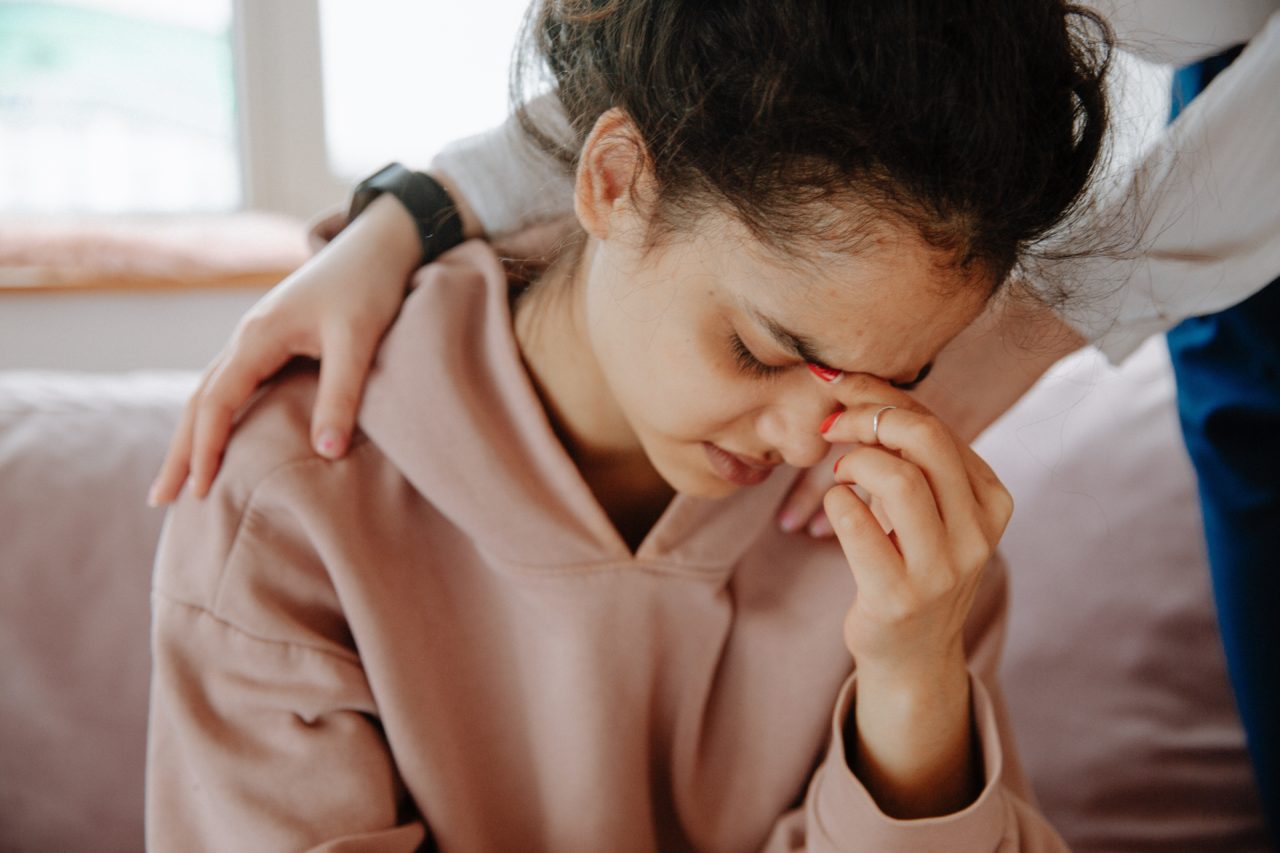How to Help my Kid with Anxiety

If you have a kid or a teenager who suffers from anxiety, you’re definitely eager to find ways to help them. After all, it’s not easy to see your dear child living with fear, avoiding people or events they love or suffering from panic attacks that severely limit their quality of life. You want them to experience their childhood and adolescence with joy and delight.
Childhood fears are a normal part of healthy development, of course, and with some issues our kids face, it’s best to gently reassure them that they are ok. However, when anxiety becomes controlling or even crippling, you know you need to do more.
As a parent, you often feel like you have the world on your shoulders. Perhaps you feel overwhelmed and don’t know where to start to help your anxious child. How to help my kid with anxiety is a question a lot of parents have to face, daily. Fortunately, there are proactive steps you can take to help your child’s world expand while making their anxiety smaller.
Empathy
As a parent, it can be really frustrating when your child is fearful of things that you (and other children) do without a second thought. Your child’s fears may make simple things take longer or force you to create complicated ways to rearrange your life. That can be exhausting!
You may try to be patient at first but find yourself losing your cool. Or maybe your parents were harsh with you, and you think your child should just buckle up and get over it. I get it. However, kids and teens, don’t typically respond well to anger or harsh words when they’re feeling anxious. Their nervous systems are already overwhelmed. Essentially, the thinking part of their brain is shut down.
But empathy, kindness, and understanding can go a long way. Tell them that you’re sorry they feel afraid, that you can tell they’re upset. Help them to name what other feelings they may be experiencing. Don’t shame them or try to force them out of their anxiety. It won’t work.
Coping Tools
Just as adults with anxiety learn important skills to manage and cope with it, so can kids and teens. The basic ideas are the same. You just may need to take a playful approach to it and join them as a supportive coach.
Help your child learn to pay attention to how their body feels when they’re anxious. Teach them deep breathing exercises (i.e., slowly blow out a candle). Make sure they’re getting a lot of physical activity and fun in their day. You may have to take an active role in nurturing play and fun in your home if your child is anxious. Our book “Beyond the Sprial” contains other breathing and coping exercises.
Some older children and teens enjoy keeping a journal where they can draw pictures or write about their feelings. Providing them with a list of feelings or pictures. I use a feelings wheel in almost every session with kids, teens, and adults. illustrating feelings can help them identify what they’re feeling which helps to decrease the intensity.
Building Tolerance
While you don’t want to force your child to face their fears, you shouldn’t enable them. If you let them avoid what they’re afraid of, their anxiety will only become stronger.
Start with small steps. If they’re afraid of going down the slide and won’t go near a playground, start by sitting in the parking lot nearby and watching the other kids. Next time, you can walk around the playground. And after that, perhaps you can sit on the swing and progress from there. You get the idea.
Setting a Healthy Example
As parents, it can be hard to practice self-care. Part of self-care is making sure we’re managing our own anxiety. We want to set a good example of how to face stress and anxiety with confidence. Your kids are watching you and absorbing the way you interact with the world.
Part of this can be talking with your kids about how you deal with stress. Provide age-appropriate explanations of times you’ve been anxious and how you’ve worked through it. If you’re currently struggling with anxiety, make sure to find support.
It’s OK to Get Help
Even the most anxious children can build the resilience and skills necessary to live a life with less fear and more fulfillment. If you find yourself in a situation where you are wondering how to help your kid with anxiety, the first step is to seek proper help. If your kid or teen is struggling with anxiety or despair, please reach out to a professional for support. Start with your child’s pediatrician who will be able to conduct a quick mental health assessment.
Another way to get help is through learning. “Seen” is an excellent starting point for parents and adults who care about kids and teenagers. This book helps us understand the truth about despair and anxiety, then equips us with practical ways to help our children flourish. “Beyond the Sprial: Why You Shouldn’t Believe Everything Anxiety Tells You“ can be read by your student or teenager, as well as you, to learn how to break free of anxiety in healthy and workable ways. Both books are available through Amazon.
By Chinwé Williams, Ph.D., LPC, NCC is a licensed clinical therapist in Roswell, Georgia who specializes in adolescent, young adult, and family mental and emotional wellness. She is also the co-author of the 2021 book Seen.